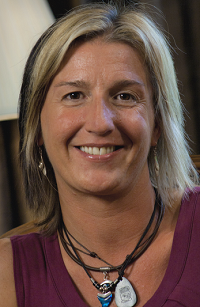TechLines panelist profile: T-Mobile's Christine Twiford

For Christine Twiford, big data equates to network optimization.

Twiford, manager of network technology solutions at T-Mobile, watches as data---call detail records, network events, download speeds and file sizes---pours into her data infrastructure.
The picture this data paints is one of T-Mobile's network health. Twiford's job: Optimize it. Twiford's team of engineers is there to serve her department with data and insight. The overall aim is to allow T-Mobile's network to use predictive modeling to determine what handsets are more likely to see heavy bandwidth activity and adjust accordingly.
"We send most of our data out for use downstream," says Twiford, who got her start in customer care. Twiford, who is overseeing a pilot of IBM's streaming data technology, says that big data is likely to alter how teams interact.
"I see a lot of shifts on roles and the way people interact with data," she says.
The TechLines panel on Oct. 4: Archimedes' Katrina Montinola | Ford's Michael Cavaretta | NASA's Nicholas Skytland
Ultimately, companies are likely to need more data scientists and data literate workers, says Twiford. "Organizations will need to catch up with statistical models, research and interacting with the data," says Twiford.
In Twiford's group, this interaction between data and people requires cultural bridges. For instance, software and radio frequency engineers need to understand mathematics as well. It also doesn't hurt if these engineers and data wonks can talk to the business side too.
"With the sheer volume of data comes the expectation that omniscience goes with that," says Twiford. "So there is a need for expectation setting."
According to Twiford, data is just going to swell due to the "digitization of our lives." "All of that data has the potential to be valuable," says Twiford. "The question is how do we get smarter about using the data."